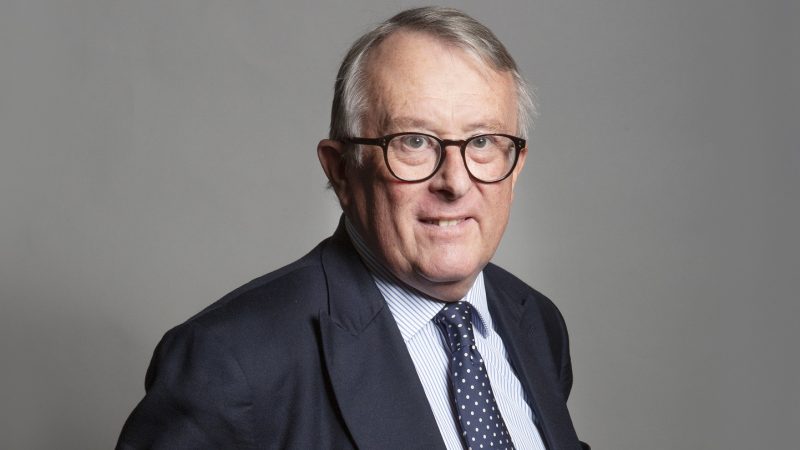Left Foot Forward spoke to Jamie Stone at the Liberal Democrats' autumn conference

The Liberal Democrats have been holding their autumn conference in Bournemouth over the last few days. With the event likely the last before the next general election, leading party figures have been repeatedly probed about what the Lib Dems would do in the event of Labour failing to win an overall majority. Throughout the event, the party’s leadership and MPs have all been seeking to avoid making any firm comments one way or the other.
Left Foot Forward caught up with Lib Dem MP Jamie Stone in Bournemouth and asked him about this. He first says that he “wouldn’t want to get into that conversation at all”, before adding, “I’m not interested in coalitions”.
Instead, Stone says as a Scottish MP and a “staunch unionist”, he wants to spend his time working to “beat the Nats”. He told Left Foot Forward, “I wouldn’t mind seeing the SNP put back in their box for a generation. Because I saw scenes in the 2014 independence referendum – in Inverness, I remember the eve of poll, it was ugly. It was ugly. It was like the Brownshirts in Berlin. And I think that’s so un-Scottish, so not how we do things. So, if they say to me: ‘Would you like to go into coalition with Labour?’ I want to beat the Nats.”
With this in mind, Left Foot Forward put it to Stone that in the event of a hung parliament, Labour’s options might be an arrangement with the Liberal Democrats, or else one with the SNP. If Keir Starmer’s party was forced to forge a deal with the SNP, committing to a second independence referendum might be the price they pay for it. Would Stone be keen to reach an agreement with Labour to prevent that from happening?
“No, because I think the Labour Party would have a rebellion on its hands,” he says, “If they went for a second independence referendum […] I think there would be absolute turmoil in the Labour Party.”
Questions about collaboration with other parties don’t solely relate to post-election coalitions. For a number of years, some campaigners have advocated a ‘progressive alliance’ between Labour, the Liberal Democrats, the Green Party and others, whereby only one party stands or campaigns hard in a particular seat to maximise the chances of unseating the Tories. This argument has gained renewed credence in light of the Mid Bedfordshire by-election, where both Labour and the Lib Dems have been campaigning extensively, and there are fears on the left that the Tories could hold onto the seat as a result.
Stone tells Left Foot Forward that a ‘progressive alliance’ is “tempting, but it’s a dangerous way to go”. He says: “While that would be tempting, the electorate does not like a stitch up. They’re not keen on that and I know that from experience in the days of the SDP/Liberal Alliance. And that, in the 83 election, did backfire and people didn’t like it, so I think it’s not clever.”
As well as being an MP, Stone is currently the Liberal Democrats’ spokesperson for digital, culture, media and sport. With a rapidly changing media landscape, Left Foot Forward asked him whether he thought that Ofcom is currently effectively regulating new broadcast outlets like GB News and Talk TV.
He starts his response by suggesting that Ofcom is currently fearful of the government and has failed to fully maintain its independence. He told Left Foot Forward: “I hope that Ofcom will conclude that in future it has got to demonstrate absolutely that they’re independent of any government, regardless of political persuasion. And I have a suspicion, but I can’t prove it, that Ofcom’s been slightly looking over their shoulders in recent times because of a certain blue coloured government.”
He added that Ofcom ought to ‘take a look’ at how it regulates these broadcasters, saying: “I think Ofcom maybe should just on one of their away days should take a look at this and have a think about it. And at the end of the day, I think their independence is crucial and that independence will lead to them having the courage to call in any publication – and it could be left or right but is just simply too extreme and not representing what is important to people or what they think.”
One area in which these outlets have attracted controversy is their use of MPs as hosts. The likes of Jacob Rees Mogg and Lee Anderson host shows on GB News, while Nadine Dorries had a show on Talk TV while she was still an MP.
Stone, however, doesn’t think there should be tighter rules on MPs presenting on broadcast outlets. He told Left Foot Forward: “I would be concerned about that actually in terms of the freedom of the press and the freedom to express your opinion, to be honest with you. I think that, however, we should always watch to see if someone says something utterly outrageous and call them out if they do.”
Chris Jarvis is head of strategy and development at Left Foot Forward
Image credit: UK Parliament – Creative Commons
To reach hundreds of thousands of new readers we need to grow our donor base substantially.
That's why in 2024, we are seeking to generate 150 additional regular donors to support Left Foot Forward's work.
We still need another 117 people to donate to hit the target. You can help. Donate today.



